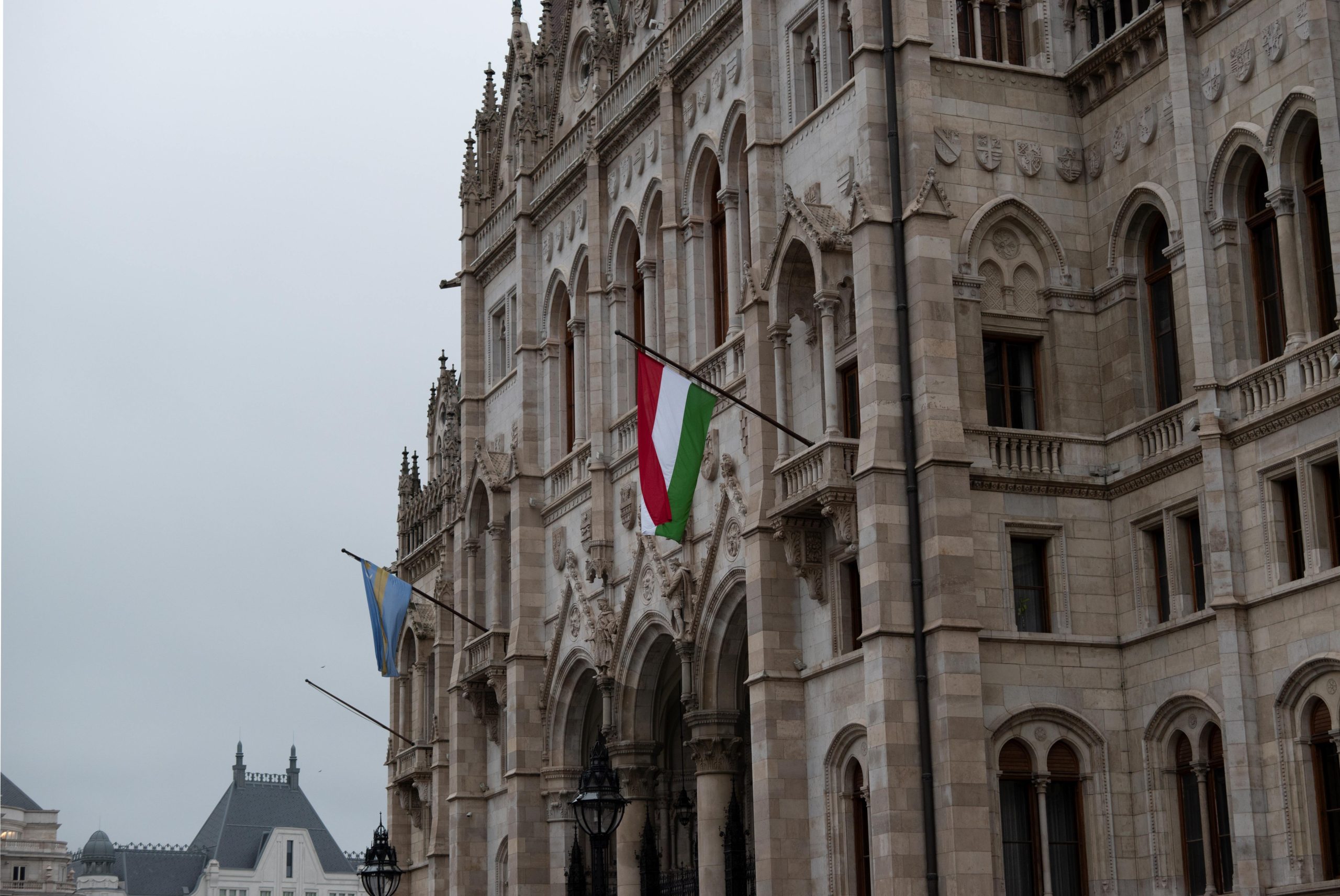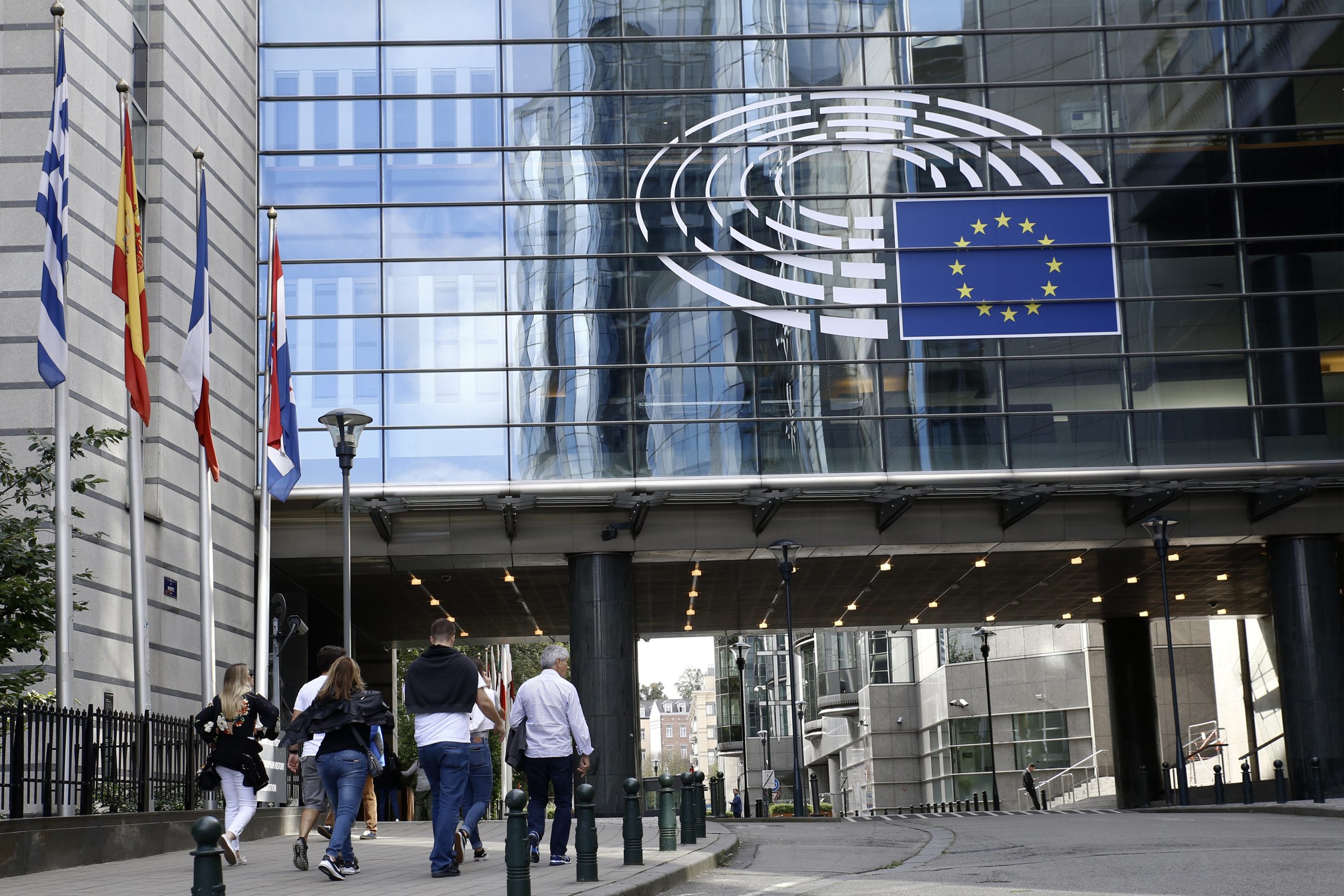
Protecting Constitutional Identity through Sovereignty? Framing the Mission of the Hungarian Sovereignty Protection Office
Three weeks ago the Hungarian Sovereignty Protection Office began its operation. Some theoretical and practical implications are analyzed below given the EU’s newest infringement proceedings launched early February as a sign of “tough love” – an early Valentine’s Day present.
On (Tough) Love and Other Mishaps
In one of my more recent posts on this blog, I wrote about the transformation of the functions of the state in the digital age, and a ‘regulation revolution’ in the context of digitalization contributing to the increasing number of legislative measures trying to remedy the “creative disruption” brought about by innovation. In this context, I deliberately did not mention the issue of digital sovereignty, as the topic is worth its own discussion. Little did I know then that the Hungarian National Assembly recently had on its agenda two new laws regarding sovereignty in the digital age. The now effective Acts “play with the idea of sovereignty” in two contexts:
One (Act on the digital state and digital citizenship) ‘takes it to the next level’, laying the foundations of the digital state and its essential state functions, also creating and defining a digital citizenship (therefore increases the impact of digitalization on the sovereign exercise of power in every administrative aspect of the digital state, balancing it with information rights and individual informational self-determination). This seems like a worthwhile effort in trying to increase digital competitiveness and joining the ranks of leading digital states, but I will not engage in any commentary in this regard right now.
The other law is much more interesting in the context of the newest infringement proceedings announced against Hungary on 8 February 2024, by the European Commission, as a sign of continued “tough love” against Hungary, which took the form this year of an early Valentine’s Day present. The Hungarian Act LXXXXVIII of 2023 “on the protection of national sovereignty” (Sovereignty Protection Act, available in English here) builds on the 12th Amendment to the Fundamental Law (directly connected to the Act in question as creating its constitutional footing), which was adopted on 12 December 2023. The Act tries to counter a globalist, post-sovereigntist narrative, alleging that there are many attempts to interfere with Hungarian sovereignty, therefore action is needed: creating the Sovereignty Protection Office (SPO), not only relevant in the digital context.
The SPO: SPOtting Some Problems of Message
In its Article 1, the Sovereignty Protection Act refers to a widely debated constitutional obligation imposed on all bodies of the Hungarian state to protect constitutional identity, under Article R) of the Fundamental Law. Article 2 of the Act talks about the duties of the SPO such as the assessment of the actualization of national sovereignty and preparing ‘sovereignty risk assessments’.
Approaching from the realm of constitutional law and given that the raison d’étre of the organization is mentioned above as arising out of the state’s obligation to protect constitutional identity, one issue needs to be highlighted from a strictly theoretical and dogmatic point of view. The protection of constitutional identity and sovereignty seem to be infused into each other by the preamble, which defines the aim of the Hungarian legislator. By attaching the duty to protect sovereignty to the obligation to protect constitutional identity, the lines between two concepts become blurred. However, they are very much distinct. What is more, such a distinction has also been underpinned by former German and e.g. Hungarian constitutional jurisprudence. With the (in)famous 2016 Hungarian “Identity decision” enumerating the elements of national constitutional identity, separating it from (national) sovereignty.
On this note, I would like to add a sidebar regarding the concepts of nation and sovereignty, as the protection of national sovereignty frames the mission of the SPO in light of the preambular provisions. Historically, it is very often argued that the denial of sovereignty became a trend because in the age of Imperialism, when the greatest powers wanted to gain influence over weaker ones, but the concept of national sovereignty served as a barrier against these attempts. In the era of nation-states, the self-determination of peoples was basically understood under national sovereignty, and the very common melting together of the notions of people(s) and nation(s) resulted in the notion of national sovereignty also meaning popular sovereignty.
This being said, and still having nothing to do with constitutional identity and its protection, the preamble of the Sovereignty Protection Act starts out of the same narrative: for years, unlawful, publicly known attempts at gaining influence over the sovereignty of the country were carried out, in the course of which foreign organizations try and go against the Hungarian (national) interest. This narrative is further reinforced when the preamble designates the injuries to Hungary’s sovereignty as a major national security risk, embodied by the statement that political power might end up in the hand of persons or organizations dependent on any foreign power, organization or person.
I may very well be considered such a person. As an editor of this blog, I am heavily dependent on the ‘support’ of many foreign authors writing for us, openly discussing important issues of Euro-American importance regarding political power in a constitutional law context. Sometimes we even exchange ideas about sovereignty and the sovereign exercise of power. I thankfully do not have any political power nor do I aspire to have any. This means that for now I can escape scrutiny by the state for these actions in the form of “sovereignty risk assessments”, carried out by the SPO as an independent authority to oversee the requirement of transparency in democratic debate and regarding the state and social decision-making. The authority is told to be necessary to expose foreign interference attempts and to prevent similar ones.
If it is the mission of this blog to shape the hearts and minds of like-minded foreign as well as Hungarian professionals, who – in the latter case – make up a very small part of the Hungarian electorate, this means that our operation may very well be perceived as an attempt to interfere with the democratic debate in a transparent manner. Through free speech, in academic terms, this debate also many times reflects on state and social decision-making, and very often touches upon such topics by foreign persons, academics, with an eye on comparison of their national contexts with Hungarian issues.
Consequently, if the purpose of the SPO is to prevent foreign attempts at influencing the democratic debate in Hungary, should we not be better off shutting down the blog? Absolutely not. What is more, we also opted for a re-design, which has only been live for a few days now, trying to boost open democratic debate in this space.
As an academic, in the past one and a half decade, I have been a dedicated believer in the protection of national sovereignty and essential state functions in the context of European integration. The conceptual framework of these distinct concepts is – among others – also mapped out by article 4(2) of the Treaty on the European Union by separating identity inherent in political and constitutional structures (i.e. constitutional identity) and essential (sovereign) state functions such as national security. I have spent a lot of my academic career writing about issues of national sovereignty, national identity, constitutional identity, essential state functions; but it pains me to say that we once again we arrived to a point, where the notion of sovereignty is used as a political weapon.
When this happened for the first time, the concept had begun devaluing. I am, however, not sure that there is anything more to devalue. Sovereignty had already suffered an immense amount of reputational damage due to certain political abuses, so maybe we need to stop for a second and re-evaluate what we use it for in the future. It is therefore a welcome provision in the Sovereignty Protection Act that the SPO is also tasked with carrying out and funding research regarding national sovereignty. Maybe some financial resources will become available to those interested in carrying out and on with this academic exercise. We should not bury sovereignty just yet.
This not to say that the notion does not have its challenges. At present, multiple contexts of sovereignty become much more important than before: financial, digital, military, and there are even talks about energy sovereignty. However, it is simultaneously much more difficult to define sovereignty through specific powers arising out of the traditional legal notion. The Sovereignty Protection Act means well in trying to approach some of these problems by pulling them into the same focal point within the ambit of the SPO. On the other hand, in doing so, the Act conflates the legal and political concepts of sovereignty, also – wrongly – throwing constitutional identity into the mix. Assessed from a strictly constitutional legal point of view, this is a mistake.
Despite everything that I wrote above, as an optimist, I am known for giving people and institutions the benefit of the doubt quite liberally. Thus, I look forward to the cases the SPO is going to handle and to how it will approach ‘risk to national sovereignty’, which actually much rather is risk posed to our national security – as it becomes evident from the preamble. This is why I should remind the reader that since long before the SPO was established, we have had a National Security Authority called Constitution Protection Office, which also has ‘investigative powers’ regarding harm to our national sovereignty and national security. Why double down then on the same front, you might ask? I am not one to answer this, but there is a trans-Atlantic example, which is worth considering below.
Nothing New Under the Sun? Lessons from a FARAway Land
There is really nothing new under the sun, and the problem of foreign influence over elections and domestic politics has been with us for as long as we can remember. Solutions have been proposed in many countries, but out of these, I now would like to mention an American one. This whole Hungarian setup embodied by the SPO, at its core, “rings a bell” if we consider the US regulatory approach introduced in 1938 by FARA, the Foreign Agents Registration Act. This Act requires the registration of foreign agents engaging in political or advocacy work in the United States, without prohibiting certain activities. Many Reports by the Department of Justice, where this activity is overseen, expressly mention that FARA “provides the public with an opportunity to be informed of the identity of persons engaging in political activities on behalf of foreign governments, foreign political parties and other foreign principals, so that their activities can be evaluated in light of their associations.”
In this sense, the US government has been – for 80 years – evaluating the practices and activities of foreign or foreign-supported agents (persons or organizations) on its territory, on grounds of protecting national security and public interest, and has been doing it in a semi-annual fashion each year. Interestingly enough, no such reports are available since 2021 in the relevant online databases, but there is record of continuous reporting activity since 1942. Obviously there are key issues of national security which arise in this context, not only based on the text of the DOJ reports but also demonstrated by the fact that there is an Assistant Attorney General for National Security responsible for the NSD FARA Unit of the Department of Justice. This American practice has seemingly gone unnoticed or at least unchallenged by global or European public opinion, even in recent years – probably due to its latency in the global news cycle – despite its heavy reliance on protecting national security interests in a political context by collecting periodic public disclosures from foreign agents and principals, as well as on their activities (and financial transactions) in support of these.
The recently established Hungarian SPO has powers to analyze, assess, evaluate and examine (wrongly contained as an ‘investigative power’ in the English legislative text cited above), as well as recommend changes to enhance the protection of national sovereignty, the violation of which is framed as a serious national security issue by the Sovereignty Protection Act. One might think that thus, the use of the well-sounding word ‘national sovereignty’ is a mere ornament to please the crowds of the national electorate, when the real issue is one of protecting national security, framed as an essential state function by the TEU as mentioned above, which should be respected by the EU. I have also written above that there is another Hungarian national security organization already responsible for this. In light of the complexity of the American national security infrastructure, it may even be understandable that there might be different but interconnected mandates in this realm, but any overlapping competences should be further examined in the Hungarian case.
For future reference, it would also be interesting to engage in a comparative exercise to examine the similarities and differences of the American and the Hungarian institutions. Maybe some foreign colleagues will take this as an invitation to join the conversation in the spirit of transparent democratic debate that is relevant to such essential functions of the sovereign state as the protection of national security.
Márton Sulyok JD, LLM, PhD is an Asst. Professor (Senior Lecturer) in Constitutional Law and Human Rights at the Institute of Public Law, University of Szeged in Hungary. JD (2007, Szeged), LLM in Anglo-Saxon Law and English Legal Translation (2012, Szeged), PhD in Law and Political Sciences (2017, Szeged). Certified as an American Legal Expert (since 2009) in a joint training program of the University of Toledo (OH, USA) College of Law and the University of Szeged Faculty of Law and Political Sciences. Currently, Prof. Sulyok is the Head of the Public Law Center at Mathias Corvinus Collegium (MCC) in Budapest, Hungary. Previously, he sat on the Management Board of the EU Fundamental Rights Agency (Vienna, 2015-2020), and is now a member of the European Group of Public Law, the Scientific Committee of the EPLO (European Public Law Organization), where he also sits on the Board of Directors.








